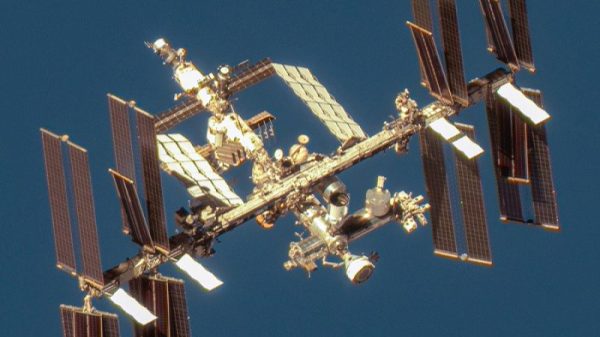At first glance, the Herculaneum scrolls look unremarkable, like pieces of coal. After surviving the eruption of Mount Vesuvius in 79 AD, the nearly 2,000-year-old documents would crumble if anyone attempted to unroll them, and surviving pieces with writing were considered to be nearly illegible to the human eye — until now.
After two millennia, the first full word from one of the unopened ancient papyri has been decoded with the help of computer technology and advanced artificial intelligence, according to an announcement made by a team of researchers who launched the “Vesuvius Challenge,” a competition designed to accelerate the discoveries made on the scrolls.
The word, “πορφυρας” or “porphyras,” which is the Greek word for purple, was found first by University of Nebraska computer science student Luke Farritor, who participated in the contest, which calls for competitors to apply a technique known as “virtual wrapping” to two rolled-up scrolls released on the site, in an attempt to decipher the hidden words.
Virtual unwrapping begins with computer tomography, an X-ray procedure that is used to scan each coiled-up, warped papyrus. After following along the curved layers in the scan, researchers then virtually flatten the scrolls and explore them using advanced AI that has been trained to find the ink on the page. The technology was created by University of Kentucky computer science professor Brent Seales and has been in development for nearly 20 years now.
But efforts to interpret the scrolls have been going on much longer.
Ancient scrolls uncovered from volcanic mud
The 79 AD eruption of Vesuvius, a volcano located near Naples, Italy, covered the ancient Roman cities of Pompeii and Herculaneum in volcanic mud. Herculaneum and the scrolls remained buried until the city’s accidental rediscovery by a worker drilling for a well in the early 1700s, according to the Herculaneum Society.
Approximately 1,100 carbonized scrolls, now referred to as the Herculaneum scrolls, were recovered from a building that was believed to be Julius Caesar’s father-in-law’s house, according to the University of Kentucky. The collection is referred to as the only known large-scale library from the classical antiquity.
In the 19th century, hundreds of scrolls were pulled apart by machine and the brittle papyri were left in pieces, according to the university’s website.
Like many other Herculaneum papyrologists, Michael McOsker, a postdoctoral researcher in papyrology at the University College London who was not involved with the discovery, has been studying the scrolls that were previously unrolled, which had caused the papyri to be fragmentary and hard to read, he said.
“Obviously, there’s a long way to go before we can read a whole roll, which is the real goal, but I’m sure it’s a solvable problem now, and one that might not even take that long,” McOsker said in an email, regarding the recent discovery.
“The unrolled papyri are rewarding and important, but it’ll be a quantum leap forward to have complete texts… I’m paralyzed by the number of options and just feel grateful for any new work from antiquity that we find. It’ll be so exciting to study whatever we find.”
‘Deep connection’ to the ancients
Farritor and Youssef Nader, a biorobotics graduate student at Freie University Berlin, worked independently of one another and found the same word. They won the “First Letters Prize” of $50,000, but the grand prize of the Vesuvius Challenge — $700,000 for the first team that can read four continuous passages at the minimum length of 140 characters — is still up for grabs.
Seales hopes that a partially read scroll, satisfactory with the contest conditions, will be seen by the end of this year, while a whole scroll might be deciphered by the end of 2024.
“This material goes back 2,000 years — there were people who wrote this,” Seales said. “They wrote about love, they wrote about war, they wrote about peace, they argued with each other. These manuscripts are dialogues that they’re having about philosophical views of the world.
“And so even if we learn nothing, but the deep connection that we have to the ancients in terms of humanity, that’s still significant.”







































